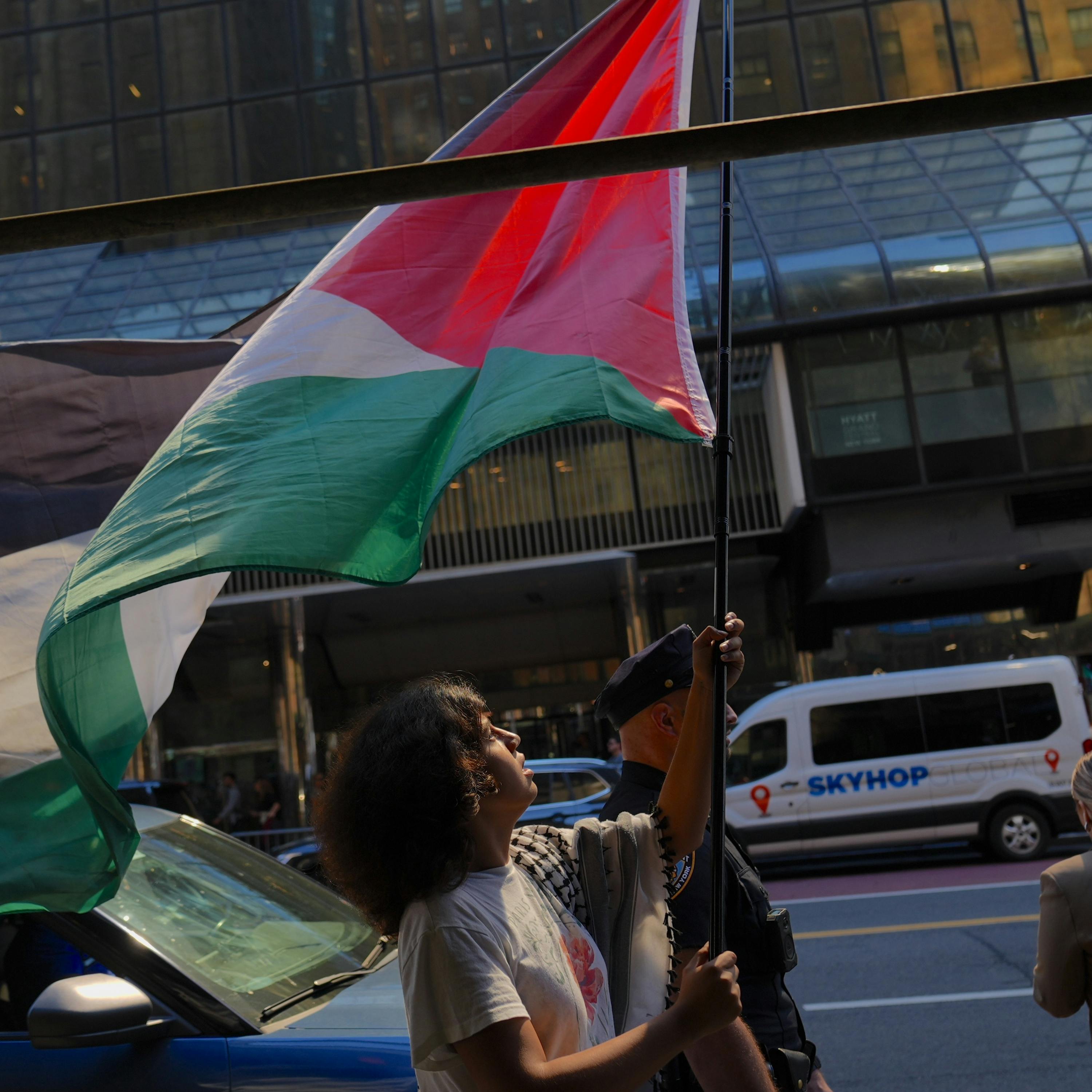A Palestinian state
As Israel continues pushing into Gaza, a growing number of world leaders are saying they now recognize statehood for Palestine.
This episode was produced by Kelli Wessinger and Denise Guerra with help from Ariana Aspuru, edited by Amina Al-Sadi, fact-checked by Laura Bullard and Avishay Artsy, engineered by Patrick Boyd and Adriene Lilly, and hosted by Noel King.
Pro-Palestine demonstrators rally in New York, where the United Nations is meeting Photo by Selcuk Acar/Anadolu via Getty Images.
Listen to Today, Explained ad-free by becoming a Vox Member: vox.com/members. Transcript at vox.com/today-explained-podcast.
Learn more about your ad choices. Visit podcastchoices.com/adchoices
This episode was produced by Kelli Wessinger and Denise Guerra with help from Ariana Aspuru, edited by Amina Al-Sadi, fact-checked by Laura Bullard and Avishay Artsy, engineered by Patrick Boyd and Adriene Lilly, and hosted by Noel King.
Pro-Palestine demonstrators rally in New York, where the United Nations is meeting Photo by Selcuk Acar/Anadolu via Getty Images.
Listen to Today, Explained ad-free by becoming a Vox Member: vox.com/members. Transcript at vox.com/today-explained-podcast.
Learn more about your ad choices. Visit podcastchoices.com/adchoices
Press play and read along
Transcript
Transcript is processing—check back soon.
Today, Explained — A Palestinian state





